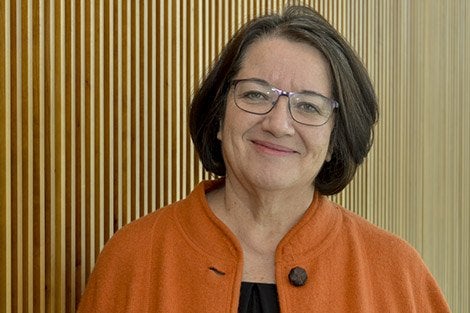December 15, 2016 – There’s plenty to worry infectious disease experts these days.
With millions of people on the move every day—travelers, immigrants, refugees—disease transmission is a constant risk. Emerging pathogens like Zika, Ebola, and pandemic influenza can unexpectedly devastate communities.
Some question the safety of public health interventions such as vaccines or genetic methods to control malaria-carrying mosquitoes.
There’s also trepidation about changes in global leadership—in the U.S. administration, the United Nations, and the World Health Organization—and about complexities in transitioning to the 2015 Sustainable Development Goals (SDGs), all of which could impact global health.
Regina Rabinovich, the ExxonMobil Malaria Scholar in Residence at Harvard University, has her sights set on how to address these and other pressing health issues. And she’s in a unique position to do so: She was recently named president-elect of the American Society of Tropical Medicine & Hygiene (ASTMH).
The ASTMH is the largest international scientific organization of experts dedicated to reducing the worldwide burden of tropical infectious diseases and improving global health.
Given the current slate of problems concerning infectious diseases experts, Rabinovich said she “can think of no more important place to be” than in a leadership role at ASTMH.
At Harvard, Rabinovich has worked on updating the global research and development agenda for malaria eradication, and has helped teach the annual Science of Eradication: Malaria leadership development course. Prior to coming to Harvard she was director of the Infectious Diseases Unit at the Bill & Melinda Gates Foundation, where she oversaw strategies to prevent, treat, and control diseases such as malaria, pneumonia, diarrhea, and neglected infectious diseases.
As ASTMH president, she hopes not only to continue to support efforts to reduce the prevalence of well-known scourges such as malaria, but also to combat emerging threats such as Zika and Ebola. She also hopes to keep neglected tropical diseases on the world’s radar screen—such as parasitic infections like onchocerciasis (river blindness) or lymphatic filariasis that don’t kill but can cause terrible health problems and are highly prevalent in certain parts of the world.
Rabinovich also hopes to spur the youngest ASTMH members, including postdocs and students, to view the organization as a place where they can talk about infectious diseases in the context of clinical needs, global health strategies, and health systems management and governance. “The Society is a great place for those discussions,” she said. “We need to engage students early in their careers and hope this can be helpful to them as they tackle the big problems going forward.”
Rabinovich also would like to further engage international colleagues. “We really need to hear from them, not only as scientists, but also as a key part of a global voice on behalf of those who suffer from infectious diseases around the world,” she said.
Rabinovich was named ASTMH president-elect at the group’s annual meeting, held in Atlanta in mid-November. She’ll serve as president-elect in 2017, then step into the president’s role in 2018.
